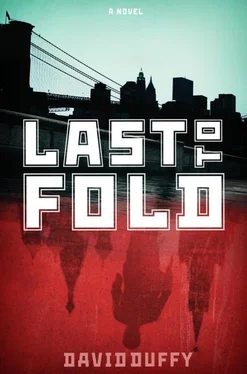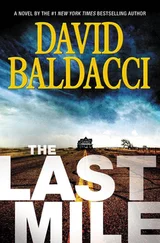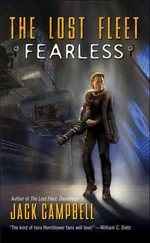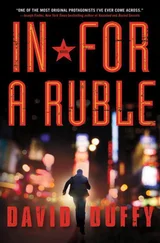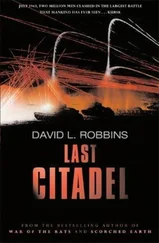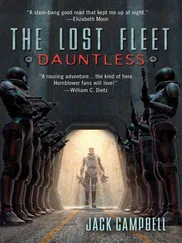I keep the trunk of the Valdez stocked with tools likely to come in handy, such as wire cutters. As dusk lowered, I used a pair to open a hole in the chain-link fence behind a construction trailer and took a stroll around. Hot, muggy, muddy. The steel frame of the new terminal was silhouetted against the hazy orange-gray sky. Looked as though the building would follow the curve of an airplane wing, rising from maybe two stories in the back to four or five in the front. A concrete floor had been poured at ground level, covering half the space; the rest was still open to the gaping foundation below. The site itself was mud and earth, mounded and rutted by rain and trucks.
I needed a place to wait and watch, out of sight, and I found what I wanted in a row of giant concrete pipe sections, easily eight feet in diameter, not far from the building. I could stand inside any one, invisible in shadows and the darkening night, with a clear view to the fence. With luck, the pipes would echo, too, and he might not be able to tell where I was. We’d get to that in due course—or so I hoped.
My watch read 8:02. Time to make the call, before he got here. I punched in the number. He answered on the third ring.
“We need to talk,” I said.
“About what? I’m on my way home. I’m sick of this place.”
“I know. I’m at JFK. You’ve got plenty of time.”
“How did you know… Where are you?”
“Construction site between Terminals Seven and Eight. There’s a little access road on your right as you come along. You’ll see my car, black Ford Crown Victoria.”
“We can’t meet in the terminal, like normal people?”
“I have people looking for me, official people, thanks to you and last night.” The best kind of lie—plausible and uncheckable.
“What is it we need to discuss—in such clandestine fashion?”
“I have what you want.”
That stopped him cold. I think he muted the phone—the silence was complete, no background noise, just ether hum, for a good thirty seconds, maybe more. When he spoke again, his voice had changed, hardened.
“What makes you think so?”
“Gorbenko, Kosokov, Polina, Eva. They all died for it.” The hook set, I could feel it. “Three hundred other Russians died, too, for what? Putin? A war? The Cheka? They included Rislyakov’s parents, by the way. At Guryanova Street. You missed that. Not like you.”
He bit. Hard. “Stay where you are. I’m half an hour away.”
“There’s a hole in the fence behind the construction trailer. I’ll be inside.”
He hung up. I walked back to the Valdez, retrieved an aluminum baseball bat from the trunk, leaned against the back side of the trailer, and waited.
* * *
Thirty-two minutes later, a car pulled into the access road, headlights off. It rolled up behind the Valdez, and the driver cut the engine. The noise of traffic and planes hadn’t lessened. The doors stayed closed, no one moved, nothing happened for five more minutes. Then two of Lachko’s men climbed out. The driver came in my direction, and the other went behind the car. I moved deeper into the shadows.
The driver passed by me and went through the fence. His colleague lifted a flat canister out of his trunk, the size of a small trash can lid, and approached the Valdez. He put the canister on the ground and knelt over it. I covered the distance between us in half a dozen steps. He heard me when I was six feet away and got out a yelp before the aluminum bat caught the side of his face. He fell forward into a muddy puddle. I pulled him to one side so he wouldn’t drown and examined the bomb he was about to attach to the underside of the Valdez. They’d come prepared. I searched the man until I found a small radio detonation device. I put that in my pocket, took the Glock automatic he was carrying, and crouched behind the car. The other man returned a few minutes later. When he saw his partner, he ran forward, adding force when I stood and swung the bat into his gut. He doubled over and collapsed. I grabbed duct tape from my trunk and bound his ankles and wrists. I did the same to his unconscious colleague and dragged him to the back of their car. It was open. The utility light reflected off two ugly machine pistols with big silencers. I removed the clips, tossed the guns aside, and lifted the comatose weight into the trunk. I returned to the driver, who was trying to relearn how to breathe. A search of his pockets yielded another Glock and a cell phone. I hefted the car bomb and dropped it on his chest, dealing his lesson a setback. Yards of duct tape later, it was strapped securely to his midsection. He could almost breathe again, but he was shaking with terror.
I held out his cell phone. “Here’s what’s going to happen,” I said in Russian. “We’re going to make a call. To your boss. You’re going to talk. Then I’m putting you in the car and going inside with this.” I held up the detonator. The eyes told me all I needed to know. “Say the right words, and he shows up here, you live, maybe. Say the wrong ones, he doesn’t show, in ten minutes I push the button. Ten minutes. That’s all you get.”
He nodded hard.
“Number?”
He reeled off ten digits in Russian. I punched them into the phone and held it to the side of his head. He spoke fast. “The cinema’s open, the movie starts soon,” he said.
I had to assume that was code for all clear. He was too scared to lie. I put one more piece of tape over his mouth and shoved him toward the back of his car. A judicious tap with the bat, and he fell over into the trunk. I lifted in his legs and slammed the lid.
I used his phone to call Brighton Beach. One more check, to be sure.
Lachko came on immediately. “What the fuck now?”
“Your men fucked up. You should have sent competent people, not useless old cunts.” I used urki slang.
“What the fuck are you talking about? I didn’t send anyone anywhere.”
“Just checking.”
I cut the connection and got my vest out of the Valdez. I put it on under my jacket. It added to the heat of the night, but I ignored that. With a quick look around, I returned to the row of outsized pipe sections to wait, Eva’s story running around in my mind.
She and her mother had moved out of the apartment they shared with Lachko a few months before the fire. Eva wasn’t sorry—Polina and Lachko had been fighting continuously for half a year. They were staying at their dacha in the Valdai Hills, which Eva didn’t like because there was little to do compared with Moscow. She was having trouble fitting into her new school, both educationally (she was at least a year ahead of everyone else) and socially. They were also spending a lot of time with Uncle Tolik, as she knew him, and she wasn’t sure how she felt about that. She had picked up on his signals. Most of the time, he didn’t want her around, and he was sending those signals that day, even before the stranger arrived.
She went out to the barn with the doll she called Lena, despite the cold and snow. She was still exploring all the rooms and spaces of the old structure, which had horse stalls and haylofts, a workshop, garage bays and a warren of under-rooms that smelled like pigs. She was upstairs in the hayloft when Mom and Uncle Tolik and the stranger came in. The man came in first, then her mother carrying the shotgun. Uncle Tolik trailed behind as if he wanted to be somewhere else. Her mother made the man open the trapdoor—something Eva hadn’t discovered yet.
The blast from the gun was so loud she thought the whole barn had exploded. She hadn’t seen it, since she’d ducked behind the hayloft wall. When she peeked over, the stranger was gone. Her mother still held the gun. Had she fired? Where was the other man? Her mother and Uncle Tolik argued. She was too shocked and scared to remember the specifics. She heard her name—they didn’t know where she was. No way she could come out now, they’d both be mad at her. Her mother said she was going back to their dacha to pick up some things. Then she’d come back here and they’d all leave. Eva didn’t know where they were going—or why. She decided to wait right where she was until her mother got back. She was scared of Uncle Tolik and what he might do if he found out where she’d been.
Читать дальше
